The Sir Arthur Lewis Centenary Lecture delivered by Sir Hilary Beckles
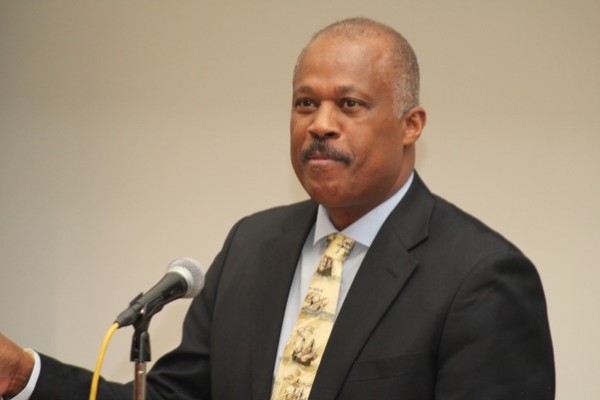
'The economics of Black freedom, reparation and anti-colonial development'
Article and photographs by David F. Roberts / Twitter: @DavidFRoberts1 of CaribDirect, our multimedia partners www.caribdirect.com
As is customary with a reparations lecture delivered by the eloquent and charismatic Sir Hilary Beckles, Vice Chancellor of the University of the West Indies, the interest was high. ‘Reparationists’ from all over the country including the acclaimed Esther Standord Xosei; students, enthusiasts and ‘on-the-fencers’ all flocked to the Anatomy Theatre of King’s College, Strand London last Monday evening.
Organised by the British Foundation for the University of the West Indies (BFUWI) in collaboration with the Ramphal Institute, the event marked the second reparation lecture in a series of topical academic lectures to be staged by the BFUWI.
Sir Hilary who is no stranger to Britain was given a warm welcome by Ramphal Institute director Mr Edwin Laurent, himself a graduate of the University of the West Indies. Sir Hilary was invited to deliver the Sir Arthur Lewis Centenary Lecture on the topic: The Economics of Black Freedom, Reparation and Anti-Colonial Development.
BFUWI Trustee Ms Susan Belgrave. Photo courtesy CaribDirect
To a packed auditorium Sir Hilary gave a glowing tribute to Sir Arthur Lewis whom he regarded as a mentor, inspiration and friend. Sir Hilary outlined how in 1957 Sir Arthur began to develop his most important concepts about the patterns of capital and wages in developing countries. He became well known for his work in the area of economic development particularly as many former colonies sought independence for European nations.
After returning to the Caribbean in 1959 Sir Arthur was appointed Vice Chancellor of the University of the West Indies and four years later in 1963 he was knighted for his contributions to economics. These achievements made Sir Hilary very proud and curious to understudy this growing Caribbean icon.
However, the writings and concepts that made him revered in Europe made him unpopular for a time in the Caribbean. His idea that the Caribbean was ‘living’ in a post apartheid environment angered many who thought he was looking to stir up trouble for the region, a region that had become used to the governance and control of the British or other appropriate Crown depending on the country in question.
Sir Hilary with BFUWI Trustee Mrs Elizabeth Mullings-Smith to his right and Mrs. Esther Stanford Xosei (extreme left). Photo courtesy CaribDirect
His was the view that the ‘extractive economies’ of the Caribbean with largely uneducated populations were not in a position to develop into productive economies without substantial capital and other resources and were therefore doomed to perish.
Sir Hilary pointed out the British government’s early betrayal of Caribbean people with the passing of the British Emancipation Act of 1833 which in essence, denied Africans were human beings thereby classifying them as ‘property’ in order to justify the issuing of ‘reparatory’ payments to British slave owners. This Sir Hilary stated was a crime against humanity and formed the basis of the reparations movement.
The centenary of emancipation saw the birth of the Rastafarian movement, Marcus Garvey movement and Caribbean independence. People determined to break away from Colonial oppression and rule. Sir Hilary asserted that if the intention of the British government was to free African people it would not have replaced it with apartheid.
Sir Hilary Beckles. Photo courtesy CaribDirect
Sir Hilary, an avid cricket lover and former director of the West Indies Cricket Board said in 1948 Frank Worrell one of Barbados’ greatest cricketers having distinguished himself around the world as a superior athlete could not become captain because he was black. But worse, Everton Weekes (the second ‘W’ in the 3Ws) who scored 4 consecutive centuries, on returning to Barbados could not vote in a general election because he was black and therefore not a citizen of Barbados. These situations started the conversation that lead to an eruption for independence in the Caribbean.
It was rumoured that Prince Philip wrote a letter to British PM Harold Wilson at the time saying Barbados is our home don’t give it up’.
Notwithstanding the Prince’s alleged objections Caribbean leaders were adamant to take the colonies out of the rubble of colonialism they inherited and turn them into nation states and build sustainable democracies. The issue of reparations was deliberately omitted from the discussion with the colonizers, a situation, on hind sight, could have been the greatest lost opportunity for the Caribbean.
A glimpse of the attentive audience. Photo courtesy CaribDirect
Dudley Thompson of Jamaica and a leading proponent of reparations and adviser to Jomo Kenyatta was asked to organise a reparations meeting in Africa and he approached President-elect Chief M.K.O Abiola who agreed. He also traveled the Caribbean insisting to leaders that they include reparations on the independence agenda but none of the premiers agreed and none wanted to place the issue before the people for referendum.
In spite of the Opposition parties of Barbados, Jamaica and Trinidad and Tobago vehemently insisting the reparation matter be put to referendum the Premier’s refused because they feared people would reject it outright due to the memories of being colonized, brutalized, and subjected to the apartheid system and therefore traumatized by their former masters. To put it simply they most feared the British government’s reprisal….
Sir Hilary noted sadly that in the early days of emancipation talks, in response to the British government talking about independence for Africans, slave owners said, “what is all this talk about independence, the Africans don’t want freedom we have brutalized, oppressed and broken their spirits, now to give them freedom they will be petrified.” Dudley Thompson likened the situation on to a woman abused by her husband.
Minister Counsellor for Barbados Mr Euclid Goodman and Deputy High Commissioner for Barbados Mrs Althea Wiggins Photo courtesy CaribDirect
The British government had, in effect, condemned the Caribbean to be fearful of the future. Premiers across the region believed they had to show leadership by taking the people over this ‘hump’ and that if left to their own devices the people would vote against independence in a referendum.Sir Hilary assured the gathering that many modern day Caribbean politicians are responding in the same way as their forefathers did in 1830 and 1960 and for the same reason…Fear!
Sir Hilary enlightened the audience that the fear expressed by post colonial Caribbean citizens is not unfounded given the 25000 Africans massacred across the Caribbean for opposing the inhumane treatment and conditions on the plantations. He singled out the tyrannical British Governor Edward Eyre who was one who committed extra judicial murders on Africans in Jamaica on instructions from the British Government.
He made the point that the Caribbean is not begging for money… it’s not a region of mendicants looking for a hand out but a region robbed of its wealth and left with rampant impoverishment and deprivation which is a direct result of the Trans Atlantic slave trade.
Dr Vindelyn Smith-Hillman, Economic adviser, Law Commission moderating Q&A session. Photo courtesy CaribDirect
Jamaica deserves, as a legal and moral duty by the British government a structured education investment program to uproot the functional challenges of efficiency that country faces, says Sir Hilary. He also suggests that Barbados, the first country in the Caribbean to receive 600,000 African slaves and the country where the slaves were most terrorized deserves a public health investment strategy to combat the alarming incidents of diabetes. Dubbed the amputation capital of the world Barbados has the highest per capita pandemic exposure to diabetes with 20% of its population.
In closing, Sir Hilary was emphatic about the relationship between power and historic global attempts to receive reparations. In so doing he pointed out his support for former Jamaican Prime Minister P.J. Patterson who said recently in response to visiting British Prime Minister David Cameron to Jamaica that his statement that ‘Jamaica should put the history of slavery and oppression behind it and look to the future;’ was irresponsible and an abuse of power.
That Cameron would not dare visit Israel and tell Prime Minister Benjamin Netanyahu to forget the whole issue of the Holocaust because it’s all about power. He said Cameron knows the Caribbean is disorganized and lacks power so cannot effectively challenge him.
Sir Hilary said that basically the reparations discourse is one about power and he’s passionate about working to equip the Caribbean with the requisite tools to succeed in the quest for Caribbean reparations. He received a standing ovation.

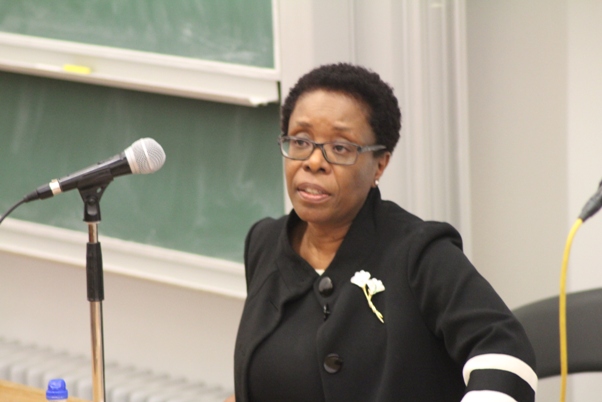
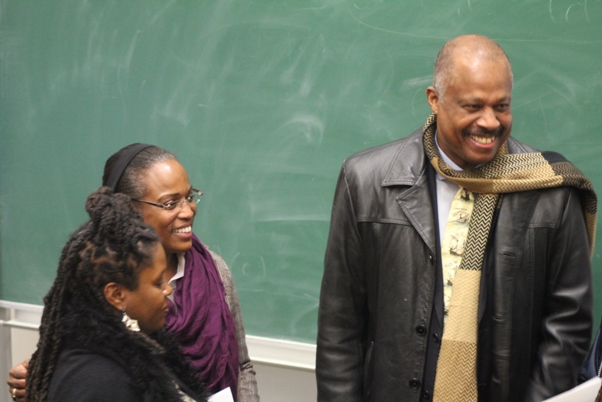
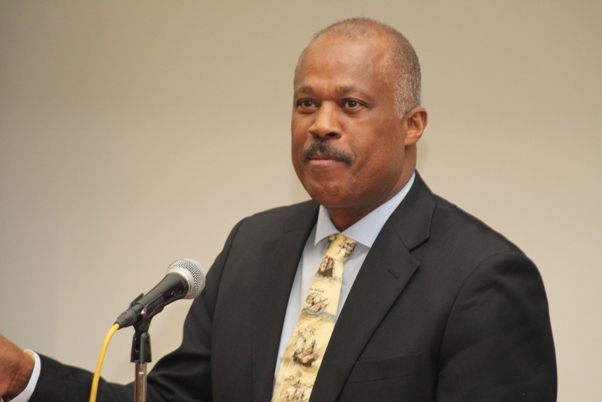
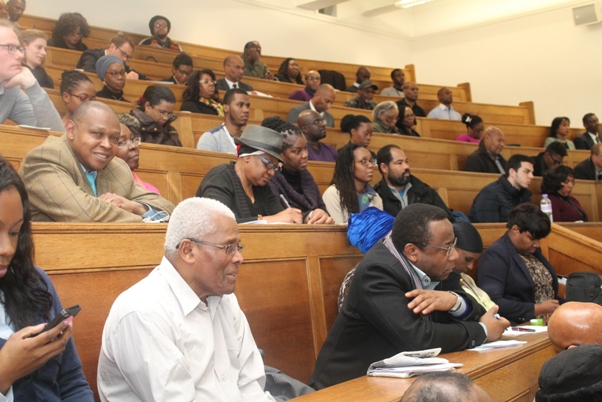
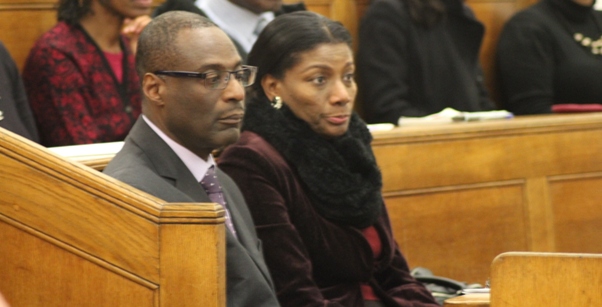
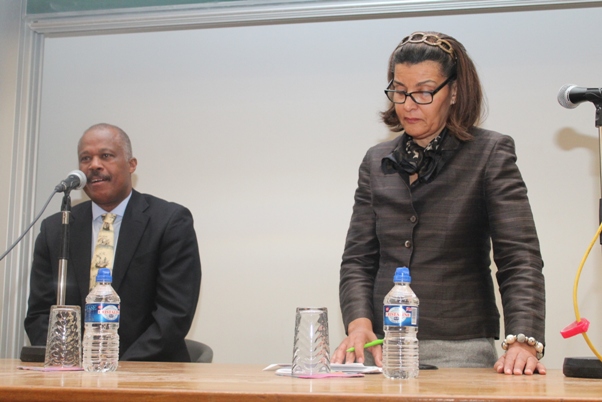

Add new comment